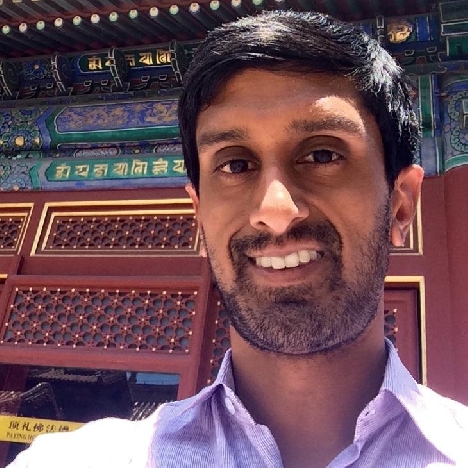
Speaker: Mahesh Srinivasan, Associate Professor, Department of Psychology; member, Cognitive Science Faculty, University of California, Berkeley
Moderator: Robert Goldman, Professor of Sanskrit and Catherine and William L. Magistretti Distinguished Professor in South & Southeast Asian Studies
Join us for a talk by UC Berkeley psychologist, Prof. Mahesh Srinivasan on how people construe and tolerate differences in religious norms and beliefs.
DATE: Thursday, October 22, 2020
TIME: 10:30am PDT
Abstract
Children who live in pluralistic societies often encounter members of other religious and secular groups who hold radically different beliefs and norms. Under these circumstances, developing religious tolerance––respecting that each group has its own beliefs and norms––is both challenging and crucial. When individuals in pluralistic societies fail to develop religious tolerance, the consequences can be dire. For example, in India, Muslims have recently been attacked because they were suspected of violating the Hindu prohibition against killing cows. Promoting peaceful co-existence among groups thus requires understanding how people construe and tolerate differences in religious norms and beliefs. In this talk, I will present a recent line of work on the development of religious tolerance among Hindu and Muslim children in Gujarat, India—a site of recent violent Hindu-Muslim conflict. These studies explore how Hindu and Muslim children and adults conceptualize norms from their own religion, as well as norms from the other religion. For example, we probe beliefs about to whom religious norms apply, whether violations of these norms should be punished, who has the authority to change religious norms, and how the contexts in which norm violations take place affect evaluations. Our findings suggest that although adult’s and children’s application of religious norms across groups and contexts often allows for peaceful coexistence, it might also lead to conflict.
About the Speaker
Mahesh Srinivasan is an Associate Professor in the Department of Psychology and a member of the Cognitive Science Faculty at the University of California, Berkeley. Previously, he was a post-doctoral researcher in the Department of Psychology at the University of California, San Diego. His research explores how representations of language and concepts arise and interact in human development and across cultures. Specific interests include flexible and pragmatic uses of language (e.g., polysemy, metaphor, implicature), the representation of abstract concepts (e.g., time, number), linguistic relativity, and social cognitive development in different cultural contexts.
Prof. Srinivasan received a Ph.D. in Developmental Psychology from Harvard University in 2011, and received a B.S. in Symbolic Systems from Stanford University in 2005.
Click HERE to read more about Prof. Srinivasan.
Sponsors: Institute for South Asia Studies, Sarah Kailath Chair of India Studies, Cognitive Science Program, Center for the Study of Democracy, Toleration, and Religion (CDTR)